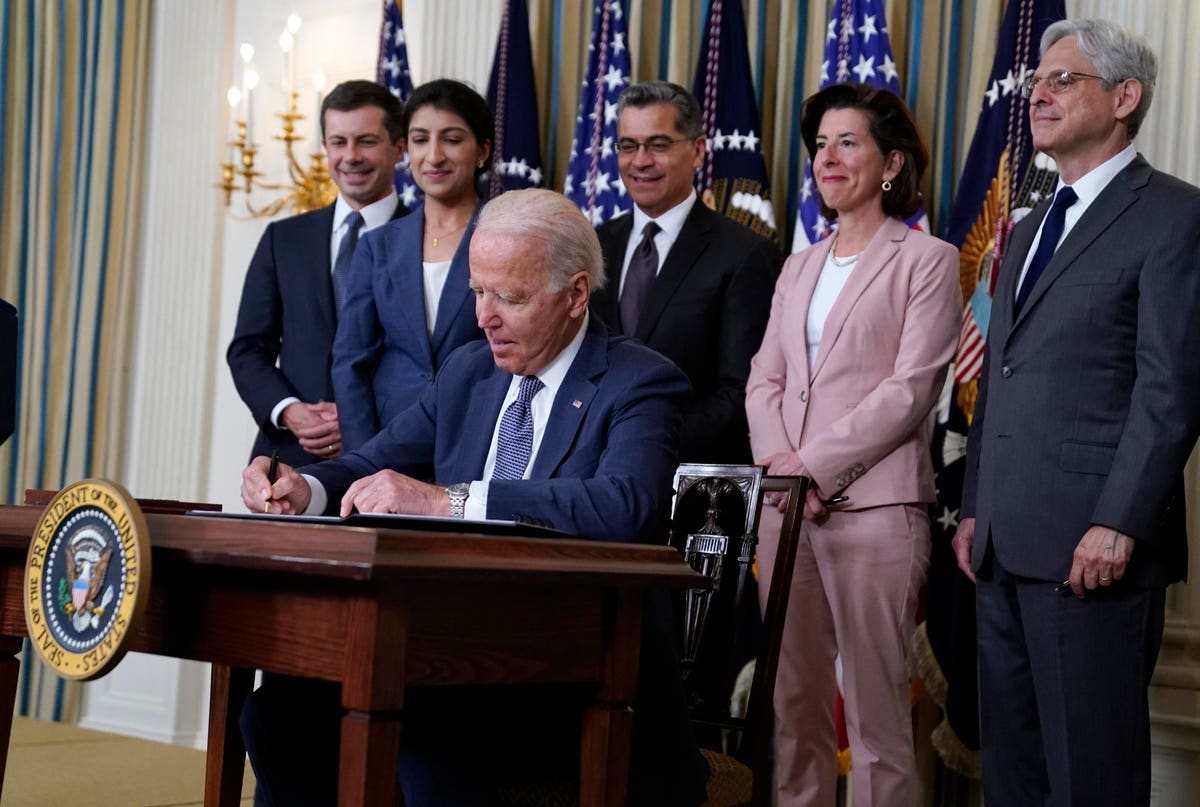The Department of Justice has embarked on one of the most ambitious antitrust lawsuits in recent memory with its challenge of Google
GOOG
MSFT
As historic as the case is, this is the first of several lawsuits where the Biden administration will tangle in court with modern tech giants. A separate DOJ trial focusing on Google’s advertising technology business is scheduled for next year. In addition, the Federal Trade Commission and 17 states filed a lawsuit against Amazon
AMZN
President Biden has empowered his antitrust regulators, FTC Chair Lina Khan and Assistant Attorney General for Antitrust Jonathan Kanter, to take on these significant cases and embraced their progressive views on the issue. The surprise nomination of Khan to lead the FTC sent shockwaves through Washington. Still, Biden made clear his intention to support these officials with his July 2021 executive order on competition policy. This EO laid out a whole-of-government approach to combat competition issues across the economy, spearheaded by Khan and Kanter.
In this role, Khan and Kanter have embraced the use of the bully pulpit, talking tough and espousing progressive theories. The challenge this approach has encountered is that the two have struggled to win in court. These defeats include high-profile losses, such as the FTC’s case to stop Microsoft’s acquisition of Activision
ATVI
UNH
Khan and Kanter’s insistence not to pursue settlements is also part of the reason for the mounting defeats. The regulators prefer to block a deal outright. Kanter has stated that “merger remedies short of blocking a transaction too often miss the mark.” However, even this stance has seemed to soften in recent months as both agencies have agreed to settlements for a handful of transactions under review. These agreements and the agencies’ court defeats have led to questions about whether the regulators’ bark is worse than their bite.
While winning any of these antitrust cases will be an uphill battle for the federal government, it is doubtful that Khan or Kanter will be eager to agree to settlements. The regulators will likely pursue these cases until their legal maximum or until it is no longer politically beneficial. Taking on these tech giants is popular as most Americans believe they have “too much power in the market,” according to a recent American Economic Liberties Project poll.
Even if victory cannot be achieved in the courtroom, there is still the potential for small wins. These cases allow Khan and Kanter to test the limits of their novel theories and potentially validate them. One such instance was in the FTC’s suit to block Meta’s acquisition of Within. The judge affirmed some of the agency’s arguments despite determining the deal was not anticompetitive. These little wins can help inform future cases the agencies bring against tech giants and better understand their path to success.
Furthermore, even in defeat, the popular perception of the tech giants offers Biden political wins where he cannot score policy wins, which will lead him to continue backing Khan and Kanter. Progressive Democrats are enthused about the show of fight and still supporting the regulators. Senator Elizabeth Warren (D-Mass.) spearheaded a letter this month, co-signed by 21 other progressive lawmakers, praising Khan and Kanter’s proposed merger guidelines. Energizing the base is why taking on these challenging cases and fighting the tech giants matters to the White House. Khan and Kanter want to succeed, but success does not always mean winning in court.
Read the full article here













Leave a Reply